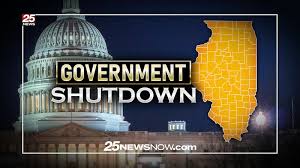Understanding the Government Shutdown: Causes and Consequences

Introduction
The recent government shutdown in the United States has garnered significant attention, impacting not only American citizens but also Canadians and global economies. A prolonged shutdown can lead to far-reaching implications, from affecting trade relationships to impacting shared resources. Understanding the factors that lead to such shutdowns is essential for Canadians, given the close ties between the two countries.
Events Leading to the Shutdown
The shutdown was triggered by a failure to reach an agreement on budgetary allocations between Congress and the President. Key issues included disagreements on funding allocations for domestic programs, immigration policies, and social welfare initiatives. With the fiscal year nearing its end, lawmakers were unable to come to a consensus by the October 1 deadline, resulting in the government ceasing operations.
Impacts on Operations
During a government shutdown, many federal programs and services are halted. National parks close their gates, federal employees face unpaid leave, and various government services are put on pause. According to estimates from the Office of Management and Budget (OMB), nearly 800,000 federal workers have been affected. In contrast, essential services such as the military and critical healthcare operations continue, leading to a chaotic juggling act in government function.
Consequences for Canadians
For Canadians, the implications are multifaceted. Trade routes between the U.S. and Canada could experience delays due to customs operations being affected. Furthermore, cross-border initiatives and collaborative programs might be slowed down, impacting joint research projects and environmental protections. As economic partners, any disturbance in government operations can ripple through both economies, influencing everything from currency values to investment decisions.
Looking Ahead
Experts predict that resolving the shutdown is critical for maintaining stability in North American markets. Negotiations are likely to continue, but the outcome is uncertain. Political analysts denote that the ongoing stalemate reflects deeper divisive trends in American politics. As they navigate these challenges, Canadians should remain informed about legislative developments, as shifts in U.S. policy could significantly impact Canadian citizens and the economy.
Conclusion
The current government shutdown underscores the importance of effective governance and bipartisan cooperation. As negotiations unfold, Canadians must pay attention to the implications for their economy and future relations with the U.S. A prolonged standoff may have lasting effects that extend beyond immediate federal operations, reshaping the landscape of Canada-U.S. interactions.









